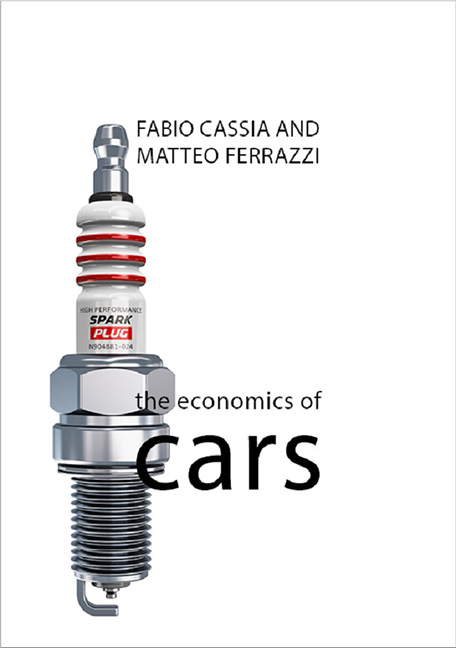Conclusion
Published online by Cambridge University Press: 24 August 2023
Summary
“The next car you buy could be your last – The robo-taxi era is closer than you think”
Forbes, April 2017The car has been undoubtedly one of the great technological and social developments of the twentieth century. The car is an integral part of the life of each of us. We never forget our parents’ car, our first car, nor the classic models. It is no coincidence that cars are among the favourite toys for children. The car represents something important for us and each journey by car has the potential to improve our quality of life: with the car, and vehicles in general, we go to work, we visit people, we travel, we go on vacation, and we move goods. “Everything in life is elsewhere, and you get there by car” wrote E. B. White in One Man’s Meat.
In this short primer, we have tried to give a comprehensive overview of the main trends affecting the industry, the importance of the automotive sector for national economies and for managerial innovation, and the production dynamics, those of demand, marketing and technology. We have analysed the potential car of the future, with an eye on the innovations that are disrupting the sector now and are likely to do so in the future.
The auto-sector is not in crisis, far from it, it has periodic ups and downs, it is cyclical by definition, and despite the difficulties of many mature markets, which are increasingly saturated, never before have so many vehicles been manufactured (around 100 million per year). Never before have so many vehicles been in circulation (1.3 billion vehicles); and never have so many cars been sold in the 130 year history of the automobile. But the industry cannot afford to rest on its laurels, as challenges for traditional producers are on all sides: there are new entrants, new markets, new technologies and evolved consumers’ preferences.
There is a change of production hierarchies in favour of emerging markets. This creates several challenges for manufacturers: new plants in emerging markets, different customers, and the need to understand the various peculiarities of local markets.
- Type
- Chapter
- Information
- The Economics of Cars , pp. 103 - 108Publisher: Agenda PublishingPrint publication year: 2018



